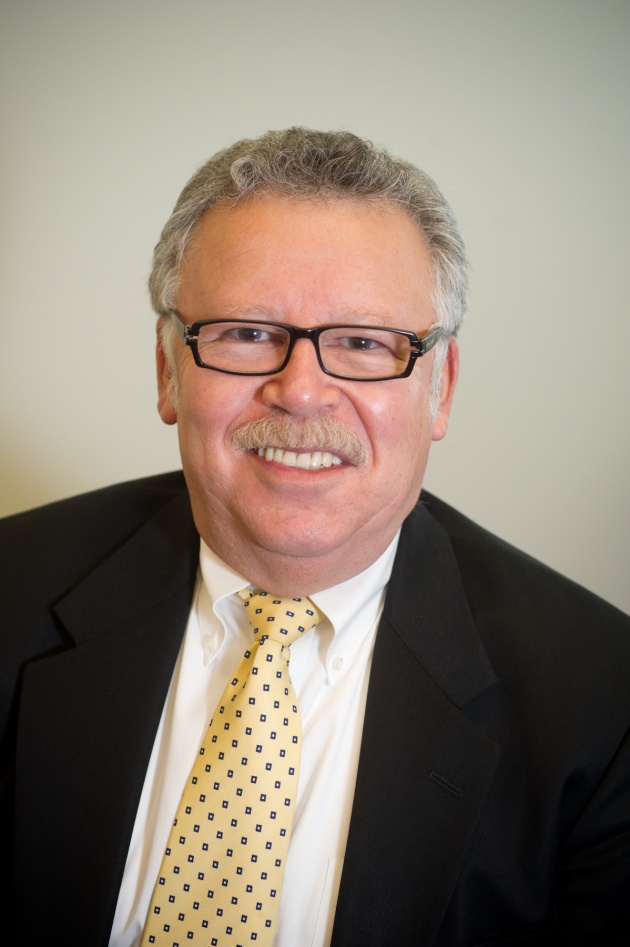
Ted Clark is the Lecturer of Marketing and Strategy in School of Business at New Paltz University.
He was a Distinguished Service Professor 2009-2010 and AMA Adviser of the Year 2008-2009
Below is an interview of him about Afghanistan, Central and South Asia
FA: Can you tell us about yourself and the philosophy behind your work at SUNY New Paltz?
TC: I have a sincere interest in being a marketing professor and a desire to continue to gain knowledge in order to contribute to the mission of the School of Business primarily through teaching, service and publishing. I also want to contribute to developing objectives that identify what students must achieve to reach the highest level of knowledge. To that end, I believe in establishing a set of specific learning objectives to identify goals and directions that meet accreditation criteria for the courses that I teach. I am also a strong believer in providing students with opportunities to gain both content knowledge and practical experience through community service. To achieve this goal I believe in using a variety of methods (e.g., exercises, class discussions, individual and group projects accompanied by reports and presentations) to help develop the student capabilities for critical thinking, problem solving and communication and to create a link between the class room and the business world.
I have been on a lecturer's line in the School of Business at SUNY New Paltz since fall 1987. My MBA thesis was entitled "Market Analysis of the Wine Industry in New York State: An Analytical Examination for Future Marketing Changes." As a marketer, with several years of experience marketing consumer financial products, I developed several hypotheses regarding the lack of success of New York State Wines. Driven by my knowledge and support of the New York State Wine Growers Association and the NY State Dept of Agriculture, I conducted several applied market research studies to gather data to support my hypothesis and write my thesis. Ultimately, the study provided a substantial amount of valuable information for the wineries in the Hudson Valley that have been officially declared the 5th wine-growing region in the state. The initial success in completing market research studies for wineries, along with my doctoral course work in research methodologies at SUNY Albany, led to the inclusion of an applied component in the market research course at New Paltz. Since adding the applied component, and founding the Business Institute and a consulting company, marketing majors have completed over 100 market research studies for campus organizations, small businesses in the Hudson Valley, non-profits, and most recently larger for-profit organizations. The expertise developed in the market research course by students also led to the successful formation of a student research consultancy by the AMA’s collegiate chapter followed by the incorporation of market research projects into The Business Institute’s offerings. Several grants from academic departments (Office of the Academic VP) and nonacademic organizations (Mohonk Preserve and the New Paltz Economic Development Corp.) led to substantial opportunities for improving the expertise of my students in market research. The Business Institute (TBI) offered the school's skills and knowledge to local and regional businesses for a competitive fee. TBI engaged faculty and students (grad and undergrad) with the business community by completing a variety of marketing projects; quantitative and qualitative research, marketing plans, marketing audits, seminars, conferences and corporate training. From 2006-2009, as the TBI Director, I conducted studies for Orange County, Health-Quest, Ulster Savings Bank, Mid-Hudson Valley Federal Credit Union, Samuel Dorsky Museum of Art, Families First of New York, United Way of Orange County, Town of Fleischman and Town of New Paltz. Eventually I founded my own consultancy company which in turn created a new segue for undergrad, grad students and faculty to provide consulting services and gain valuable experience.
FA: What do you look for in the people you work, both students and faculty?
TC: Some of the attributes and skills I look for in colleagues and students are good communication skills, mastery of subject matter, scholarly ability, and effectiveness in university service, teaching effectiveness and continuing growth.
FA: What is social media's role in your business? How much do you use it and how?
TC: Social media is used in my classroom and by the collegiate chapter of the American Marketing Association, for which I am the faculty advisor, to communicate with students, AMA members and potential clients for my consulting company. I use Facebook to keep in touch with friends and alums and often post information regarding important events related to the AMA; conferences, wine tasting, etc. LinkedIn is used to keep in touch with professional contacts and potential clients and I use twitter occasionally to send out tweets to reach friends and customers.
FA: Can education, digital technology and marketing influence a digital, cultural and business revolution? If yes, how so?
FA: Where do you see the future of developing countries like Afghanistan? Do you think education, digital media and marketing can help improve their economy and education system?
TC: I believe digital technologies have already transformed media, retail, entertainment and many other industries including higher education. Brick and mortar college facilities will remain, but digital technologies will transform the way education is delivered and accessed, and the way ‘value’ is created by higher education providers. Global mobility will grow for students, academics, and university brands. This will not only intensify competition, but also create opportunities for much deeper global partnerships and broader access to student and academic talent. With regard to business there will be integration with academics because universities will need to build deeper relationships with business in the decade ahead.
The higher education system is critical to Afghanistan’s future. Universities educate leaders and entrepreneurs of the future, create new ideas and knowledge, and earn much needed export income. Universities provide opportunities for students of all backgrounds to increase standards of living for themselves and future generations. But, to succeed, universities will need to forge new business models that are dynamic, modern and fit the present environment and the decades ahead.
FA: What do you think of Film Annex's initiatives in Afghanistan?
TC: I believe the approach used by Film Annex initiatives in Afghanistan hold a lot of promise. It is obvious that the more education the citizens of developing nations acquire the greater the recognition of opportunities to improve the welfare and lifestyles of their citizens. “Teach a man to fish………”
FA: As a professor in a leading business school, what advise would you give to young women and men in Afghanistan and other developing countries?
TC: I would give the following advice to Afghan students: gain as much information as possible about the country or university you plan to attend or visit, you get an unbelievable feeling of mastery when you arrive, it’s a fun déjà-vu when you try to match the pictures on the website with what you encounter and most important, it really makes things much easier.
Set your goals: many assume this for is only studying or getting the degree. Such goals cannot be fuel of your engine. Be more specific and write them down… How good do you want your grades to be? If you are a postgraduate, how many articles do you want to publish? How good do you want your English to be? Meanwhile, do not forget the spice as well… Which cities in the US do you want to see? Which nationalities and culture do you want to learn more about? Which skills or sports do you want to peruse as a hobby or professionally?
Join or launch a chapter of a business student organization. Join and stay with an organization and take part in their activities regularly not just join their mailing list. Suddenly you get friends with a shared interest in common and there are very many activities which help you develop your personality and interests, socialize, have fun and be more useful for the community.
Start friendship with at least one American student in person or on the Internet: that’s a great way for learning American culture, getting involved in a larger range of activities, improving your English or learning about something that you don’t understand. You would be amazed how much s/he is interested in your culture, food, and customs as well.
Seek advice from international students: You can gain the experience of others for free in the form of advice! Never hesitate to seek others’ advices… from choosing restaurants, to which shop is cheaper for shopping or which bank to open an account… Whatever you are not 100% sure about ask!Last but not the least smile: …Yes! Try to smile as often as possible and just see the results.

FA: How is education an important factor for women's independence and self esteem?
TC: Self-esteem refers to the positivity of a person’s self-concept and self-concept is essentially the belief a person holds about his own attributes and how he evaluates himself on those qualities. The greater the gap between a person’s ideal self and their real or present self, the higher the motivation to close that gap. When a person compares some aspect of himself to an ideal, this judgement influences his self-esteem. An education helps to close the gap between the real and ideal self by moving the individual closer to the ideal self based on positive attributes such as education and knowledge.



